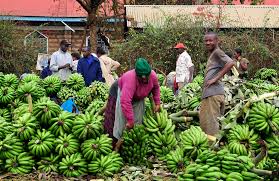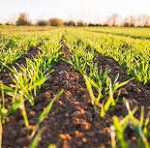Agriculture stands as humanity’s oldest endeavor, yet its significance in shaping our present and future remains as profound as ever. From the fertile plains of ancient Mesopotamia to the technologically advanced farms of the 21st century, agriculture has been the cornerstone of civilization, providing sustenance, economic opportunity, and cultural richness. In this article, we delve into the multifaceted world of agriculture, exploring its importance, challenges, and the innovative solutions driving its evolution.
The Pillar of Food Security
At its core, agriculture is about nourishing people. With the global population projected to exceed 9 billion by 2050, the demand for food is escalating. Agriculture shoulders the responsibility of feeding this burgeoning population, making food security a paramount concern. From smallholder farmers in rural villages to large-scale agribusinesses spanning continents, agricultural production must rise to meet the challenge. Sustainable farming practices, improved crop varieties, and efficient distribution networks are essential for ensuring that no one goes hungry in a world of plenty.
Sustainability in Focus
As the custodians of the land, farmers are acutely aware of the delicate balance between productivity and environmental stewardship. Sustainable agriculture seeks to harmonize these objectives, minimizing environmental impact while maximizing yields and profitability. Practices such as conservation tillage, crop rotation, and integrated pest management promote soil health, biodiversity, and water conservation. Moreover, the adoption of agroecological principles emphasizes the interconnectedness of agricultural systems with natural ecosystems, fostering resilience in the face of climate change and other environmental challenges.
Empowering Rural Communities
Beyond its role in food production, agriculture is a linchpin of rural development and poverty alleviation. In many parts of the world, rural communities rely on agriculture as their primary source of income and livelihood. Smallholder farmers, who constitute the majority of the world’s agricultural workforce, often face formidable challenges such as limited access to credit, markets, and technology. Empowering these farmers through targeted interventions, such as capacity building, market linkages, and microfinance, is essential for unlocking their potential and catalyzing economic growth in rural areas.
Harnessing Technology for Progress
In the age of digitalization and precision agriculture, technology is revolutionizing every aspect of the agricultural value chain. From drones and satellite imagery for crop monitoring to IoT-enabled sensors for soil moisture management, farmers have access to an unprecedented array of tools and technologies to enhance productivity and efficiency. Moreover, advances in biotechnology, such as genetically modified crops and gene editing techniques, hold the promise of addressing pressing challenges such as pests, diseases, and climate resilience. However, the responsible deployment of these technologies requires careful consideration of ethical, social, and environmental implications.
Cultivating Innovation and Resilience
As agriculture confronts an array of complex challenges – from climate change and water scarcity to market volatility and pest outbreaks – innovation and resilience are paramount. Research institutions, policymakers, and agricultural stakeholders must collaborate to develop and disseminate innovative solutions that address these challenges while promoting sustainability and inclusivity. Investing in agricultural research and extension services, fostering knowledge exchange and collaboration, and creating an enabling policy environment are essential for nurturing a culture of innovation and resilience within the agricultural sector.
Conclusion
In conclusion, agriculture remains humanity’s most vital enterprise, underpinning our food security, economic prosperity, and environmental sustainability. As we navigate an uncertain future characterized by rapid population growth, climate change, and technological disruption, agriculture stands as a beacon of hope and resilience. By embracing sustainable practices, harnessing the power of technology, and fostering innovation and collaboration, we can ensure that agriculture continues to nourish our world and sustain our future for generations to come.





